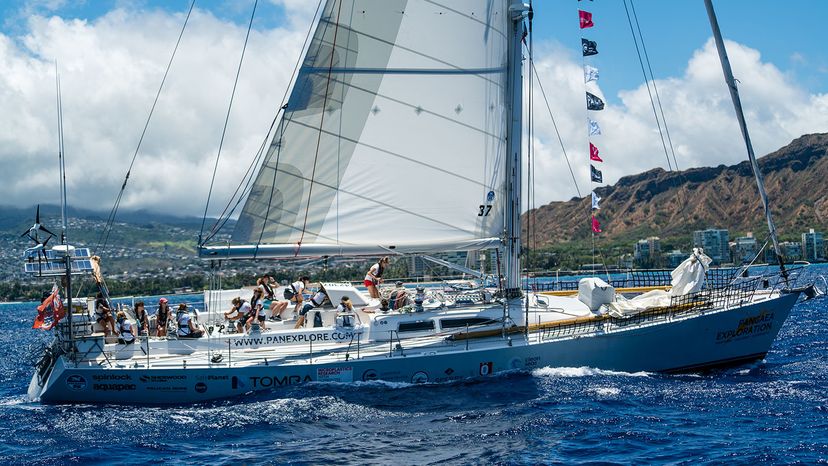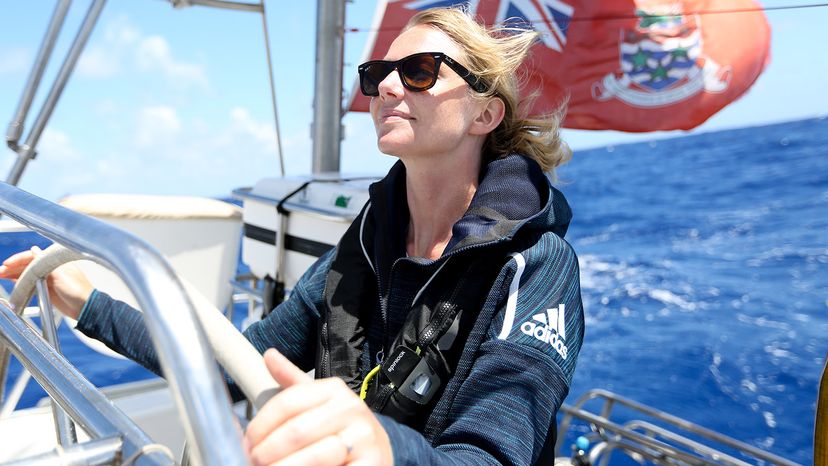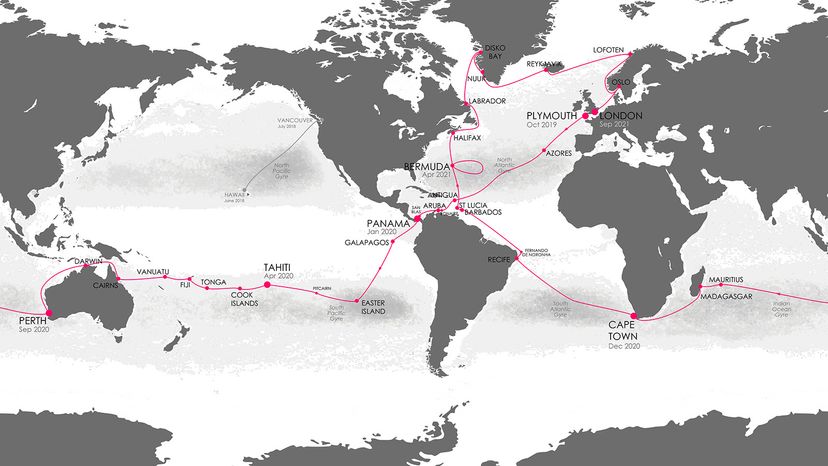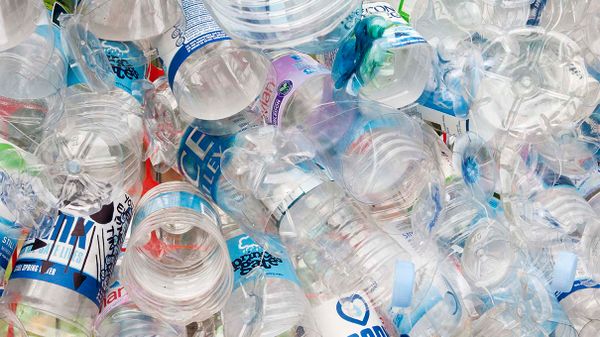"The logical next step was to scale up," Penn says. "That's why we are going Round the World."
It's the organization's most ambitious voyage yet, with 300 women from multiple disciplines sailing 30 voyages and 38,000 nautical miles over a two-year period — from October 2019 until September 2021.
Penn will lead the maiden voyage leg from the U.K. to the Azores, which sets sail on Oct. 8, 2019. "We are partnering with the University of Plymouth to develop a science program that will give us a clearer picture of the impact of plastics and toxics around the world," she says. "It's a unique opportunity to collect global data."
The crew of female citizen scientists will examine plastics and toxics in the ocean in four of the five oceanic gyres — major spirals of ocean-circling currents present both north and south of the Equator— and the Arctic.
But don't get the idea eXXpedition voyages are glamorous getaways for pampered divas. For starters, all participants are expected to contribute a share of the cost of the voyage, anywhere from $5,866 (the leg from Port Douglas, Australia to Darwin, Australia) to $12,956 (the leg from Perth, Australia to Mauritius), plus the cost of getting to and from where the boat is located. Competition to become a member of the crew is fierce and crews work hard.
"Our voyages are definitely not holidays," Penn says. "All our crew members are expected to take part in every aspect of life on board, including sailing, cooking, cleaning, night watches, science on board and workshops. Of course, we laugh a lot too ... [and] see amazing wildlife and visit fantastic places."



